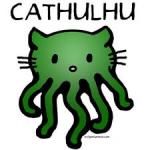Quote
The Heart of What Was Lostáacts as a bridge between theáMemory, Sorrow and Thornátrilogy by Tad Williams and its upcoming sequel series,áThe Last King of Osten Ard. The first novel in that trilogy,áThe Witchwood Crown, will be released in June 2017. This book is useful for laying some groundwork for that trilogy and wrapping up some loose ends from the earlier series that Williams was unable to address at the time.
The Heart of What Was Lostáis short, focused, lean and mean. Just 200 pages long in hardcover, making it barely a short story by the author's normal standards, it moves with pace and energy. As a war story it has quite a bit of action, but also with some strong moments of character-building as characters reflect on what is going on.
The book is related from three different points of view. Porto is an ordinary soldier in Isgrimnur's army who yearns for an end to the war so he can go home, but is distracted when he befriends a terrified younger fellow soldier and tries to keep him alive. Isgrimnur, a returning character fromáMemory, Sorrow and Thorn, is the gruff general and old warrior, still charismatic and skilled at warfare but hurting from the death of his son ináTo Green Angel Tower. Viyeki is a Builder, one of the main orders of Norn society, tasked with maintaining walls and fortifications, and the first Norn POV character in the series.
This POV rotation is effective, although Porto's contribution to the story is limited. I suspect Porto, or maybe his offspring, will play a role in the upcoming trilogy otherwise I can't see much reason for him being in this book. Still, he provides an interesting ground's eye view on the battles. Isgrimnur is the same world-weary warrior we met ináMemory, Sorrow and Thorn, but fleshed out as he grapples with the fall-out of his son's death. Williams is successful in making Isgrimnur's grief raw and convincing, given he last wrote for the character some twenty-three years earlier. The most successful character is Viyeki, who gives us a much-needed "bad guy" perspective on events. Although the first trilogy successfully established why the undead Ineluki wanted to destroy the world, it was less clear on why the Norns would support him. This book goes much deeper into their motivations, backstory and histories, fleshing out an under-explored area of the original trilogy's worldbuilding.
The story is short, mostly concerned with moral concerns as Isgrimnur ponders the wisdom of trying to make the Norns extinct and the Norns' battle for survival and hope to leave something for future generations to build upon. But it is powerfully and effectively told. Williams slips back into Osten Ard like he's never been away, and the novel feels weightier than it could have been, as the author slips extra moments of worldbuilding and foreshadowing for the future books into the narrative. There's also some nice misdirection. At one point the Norns outline a plan which feels almost like it could be the plot synopsis for the next trilogy, but this is then abruptly undercut when a major character dies and the plot takes an unexpected 90 degree turn onto a different path. Ultimately, this makes the book more self-contained than I was expecting. Certainly there is pipe-laying foráThe Last King of Osten Ardátrilogy, but it's done very subtly.
The Heart of What Was Lostá(****) is not just an effective scene-setter and palate-cleanser for the new trilogy, but a strong self-contained story in its own right, with more twists and turns than you might expect for its short length. The novel is available now in theáUKáandáUSA.

 Help
Help













